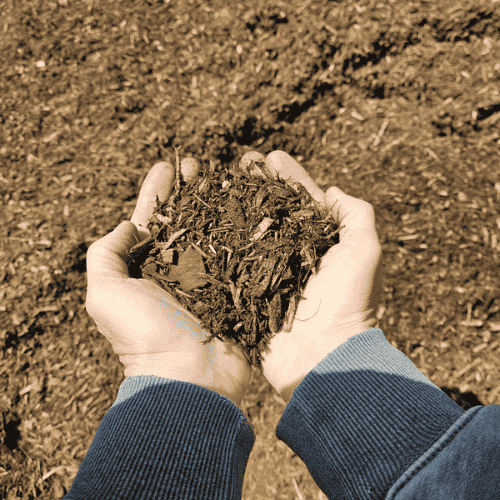
If you’re growing vegetables in New Jersey, choosing the right mulch isn’t just a finishing touch—it’s a game-changer. Mulch helps retain moisture, prevent weeds, improve soil structure, and even reduce disease. But not all mulch is created equal, especially when it comes to edible gardens. Whether you’re a weekend gardener in Sussex County or managing a larger backyard plot in Morris County, selecting the best mulch for your vegetables can boost yields and save time.
Let’s dig into the types of mulch that are ideal for vegetable gardens, explore their benefits and drawbacks, and share tips for when and how to apply them.
Why Mulch Matters in a Vegetable Garden
Before choosing a mulch type, it helps to understand why mulching is so valuable for vegetable beds:
- Moisture Retention: Helps reduce evaporation, which is especially helpful during New Jersey’s hot, dry summers.
- Weed Suppression: Blocks sunlight, making it harder for weeds to sprout and compete with your veggies.
- Temperature Control: Keeps roots cooler in summer and provides insulation during early spring or fall.
- Soil Health: Organic mulches break down over time, improving soil structure and fertility.
- Cleanliness: Keeps fruits like tomatoes and cucumbers off the bare soil, reducing rot.
Top Mulch Options for Vegetable Gardens in NJ
Let’s break down the best options, starting with organic mulches—our top recommendation for vegetable gardens.
1. Straw (Not Hay)
Pros:
- Lightweight and easy to spread
- Excellent moisture retention
- Breaks down over the season, adding organic matter to the soil
Cons:
- Can blow away if not secured
- Must ensure it’s weed-free (avoid hay, which often contains seeds)
Best for: Tomatoes, cucumbers, melons, squash
Pro Tip: Look for “clean straw” like wheat or oat straw. Kirk Allen Landscape Supply offers straw bales that are perfect for gardening.
2. Shredded Leaves
Pros:
- Free (if you collect them yourself)
- High in carbon, beneficial to soil microbes
- Great for fall and early spring applications
Cons:
- May mat down if applied too thick
- Can temporarily tie up nitrogen as they decompose (balance with compost or fertilizer)
Best for: Root crops like carrots and beets
Pro Tip: Shred them with a mower before applying to prevent clumping.
3. Compost
Pros:
- Rich in nutrients
- Improves soil fertility and structure
- Safe for nearly all vegetables
Cons:
- Doesn’t suppress weeds as effectively as coarser mulches
- Needs replenishing more frequently
Best for: Leafy greens, herbs, and soil conditioning between plantings
Pro Tip: Use a compost-mulch combo layer—1” compost, topped with 2” straw—for a dual benefit.
4. Grass Clippings (Untreated)
Pros:
- Free and readily available
- High in nitrogen, good for leafy crops
- Quick to break down
Cons:
- Can get slimy if applied too thick
- Must be from lawns not treated with herbicides or pesticides
Best for: Lettuce, kale, and fast-growing greens
Pro Tip: Let clippings dry slightly before applying to reduce matting.
5. Wood Chips (Use Cautiously)
Pros:
- Long-lasting
- Good for pathways and borders
- Visually tidy and natural-looking
Cons:
- Not recommended directly around tender veggie roots
- Can temporarily tie up nitrogen in soil
Best for: Pathways between raised beds or rows—not on actual vegetable beds
Pro Tip: Use hardwood mulch in walkways and keep it a few inches away from stems.
Mulches to Avoid in Vegetable Gardens
Some mulches just aren’t a good fit for edible gardens:
- Rubber Mulch: Doesn’t break down, can leach chemicals
- Colored Mulch: May contain dyes or treated wood that could be harmful
- Hay: Often loaded with weed seeds
Always opt for natural, untreated, organic options when growing food crops.
When to Mulch Your Vegetable Garden
Timing matters. Here’s a quick seasonal breakdown for New Jersey growers:
- Spring (Late April to May): Mulch after soil warms up and seedlings are established. Mulching too early can keep soil cold.
- Summer: Reapply or top off mulch to maintain moisture through hot weather.
- Fall (September–October): Apply shredded leaves or straw to prep soil for winter and reduce erosion.
How Much Mulch Should You Apply?
- Vegetable Beds: 2–3 inches of organic mulch like straw or shredded leaves
- Compost as Mulch: 1–2 inches max
- Around Plants: Keep mulch 1–2 inches away from stems to prevent rot
You don’t want to suffocate your plants—just give them a comfortable blanket.
Where to Buy Quality Mulch in New Jersey
If you’re in Morris, Sussex, or Warren County, Kirk Allen Landscape Supply offers a wide range of mulch types perfect for vegetable gardens. Whether you’re looking for clean straw bales, bulk compost, or hardwood chips for walkways, we’ve got you covered.
We provide pickup and delivery options to make your garden season as stress-free as possible.
📍 Visit us online
📞 Call: 973-347-3117
Final Thoughts
The best mulch for your vegetable garden depends on what you’re growing, your soil condition, and how much maintenance you want to commit to. For most New Jersey gardeners, straw, shredded leaves, and compost are reliable go-to options that boost soil health and productivity. Avoid synthetic or chemically treated mulches around edibles.
With the right mulch in place, you’ll save time watering, weeding, and worrying—so you can focus on what matters: harvesting delicious, homegrown food.

